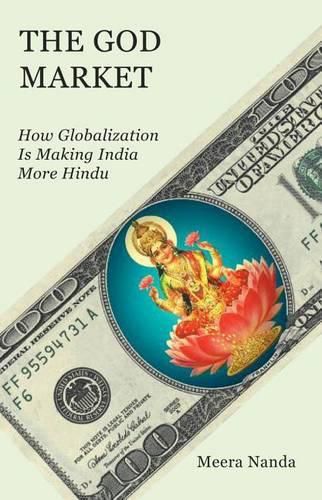Readings Newsletter
Become a Readings Member to make your shopping experience even easier.
Sign in or sign up for free!
You’re not far away from qualifying for FREE standard shipping within Australia
You’ve qualified for FREE standard shipping within Australia
The cart is loading…






Conventional wisdom says that integration into the global marketplace tends to weaken the power of traditional faith in developing countries. But, as Meera Nanda argues in this path-breaking book, this is hardly the case in today’s India. Against expectations of growing secularism, India has instead seen a remarkable intertwining of Hinduism and neoliberal ideology, spurred on by a growing capitalist class. It is this State-Temple-Corporate Complex, she claims, that now wields decisive political and economic power, and provides ideological cover for the dismantling of the Nehru-era state-dominated economy. According to this new logic, India’s rapid economic growth is attributable to a special Hindu mind, and it is what separates the nation’s Hindu population from Muslims and others deemed to be anti-modern. As a result, Hindu institutions are replacing public ones, and the Hindu revival itself has become big business, a major source of capital accumulation. Nanda explores the roots of this development and its possible future, as well as the struggle for secularism and socialism in the world’s second-most populous country.
$9.00 standard shipping within Australia
FREE standard shipping within Australia for orders over $100.00
Express & International shipping calculated at checkout
Conventional wisdom says that integration into the global marketplace tends to weaken the power of traditional faith in developing countries. But, as Meera Nanda argues in this path-breaking book, this is hardly the case in today’s India. Against expectations of growing secularism, India has instead seen a remarkable intertwining of Hinduism and neoliberal ideology, spurred on by a growing capitalist class. It is this State-Temple-Corporate Complex, she claims, that now wields decisive political and economic power, and provides ideological cover for the dismantling of the Nehru-era state-dominated economy. According to this new logic, India’s rapid economic growth is attributable to a special Hindu mind, and it is what separates the nation’s Hindu population from Muslims and others deemed to be anti-modern. As a result, Hindu institutions are replacing public ones, and the Hindu revival itself has become big business, a major source of capital accumulation. Nanda explores the roots of this development and its possible future, as well as the struggle for secularism and socialism in the world’s second-most populous country.